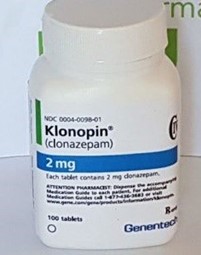Group therapy is encouraged but not mandatory. on an inpatient psychiatric unit, the unit manager's policy is that clients can make a choice about whether or not to attend group therapy.
Which ethical principle does the unit manager preserve?
Non-maleficence
Beneficence
Justice
Autonomy
The Correct Answer is D
Autonomy is the ethical principle that upholds an individual's right to self-determination and decision- making regarding their own life and treatment. In this case, the unit manager's policy of allowing clients to make their own choice about whether or not to attend group therapy preserves the principle of autonomy.
By not mandating group therapy, the unit manager respects the clients' right to make decisions about their own treatment and encourages them to participate in a way that feels comfortable and aligned with their own goals and values. This promotes a sense of empowerment and self-efficacy in clients, which is important for their overall recovery and well-being.
While beneficence, non-maleficence, and justice are also important ethical principles in healthcare, they are not directly applicable to this particular situation.
Nursing Test Bank
Naxlex Comprehensive Predictor Exams
Related Questions
Correct Answer is A
Explanation
Clonazepam is a benzodiazepine medication that acts quickly to reduce anxiety and promote relaxation. It is commonly used as a PRN medication for acute anxiety episodes.
Amitriptyline (Elavil) is a tricyclic antidepressant that is not typically used as an as-needed anxiolytic medication due to its slow onset of action and potential for side effects.
Olanzapine (Zyprexa) is an atypical antipsychotic medication that can be used to treat anxiety in certain cases, but it is not typically used as a PRN medication for acute anxiety episodes.
Escitalopram (Lexapro) is a selective serotonin reuptake inhibitor (SSRI) antidepressant that is not typically used as an as-needed anxiolytic medication due to its slow onset of action. It is usually taken on a daily basis to provide ongoing anxiety relief.

Correct Answer is D
Explanation
In this scenario, the client has expressed a serious threat to harm someone, which triggers a healthcare provider's duty to warn law. The nurse appropriately informed the healthcare provider, who then informed their boss, to protect the potential victim from harm. This action is not a violation of privacy or confidentiality, as it is necessary for the safety and wellbeing of others.
Therefore, no disciplinary action is required for the nurse or the healthcare provider, as they acted in accordance with their professional and legal obligations to protect the safety of others.
Whether you are a student looking to ace your exams or a practicing nurse seeking to enhance your expertise , our nursing education contents will empower you with the confidence and competence to make a difference in the lives of patients and become a respected leader in the healthcare field.
Visit Naxlex, invest in your future and unlock endless possibilities with our unparalleled nursing education contents today
Report Wrong Answer on the Current Question
Do you disagree with the answer? If yes, what is your expected answer? Explain.
Kindly be descriptive with the issue you are facing.
